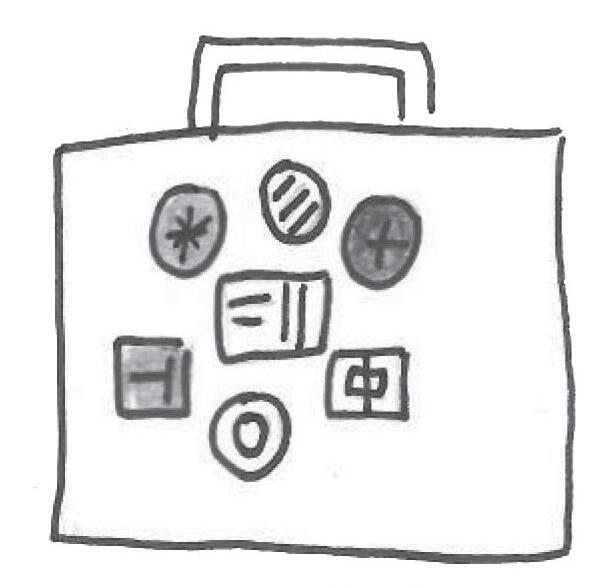
2 minute read
Like a Paddington bear
People migrate all over the world hoping to find a better place to live. The global mobility, which increases with time, raises many issues. There are people, who believe that immigrants cause various problems. They make countries worse, make it difficult for natives to find jobs, threaten the countries’ culture and history. Some people experience this irrational fear towards foreigners, fear of losing their culture, language or social identity. Quite often these xenophobic attitudes lead to discrimination, and even genocide.
The popular stencil1 pairs a Paddington bear, a classic fictional character in English children’s literature, with the important message: “migration is not a crime”. This stencil first appeared in Bristol in 2007. It is still disputed if it was the famous graffiti painter Banksy who created it. Regardless, the pairing of an innocent Paddington Bear with a serious message leaves us thinking about the global issue, which still remains unsolved and unsettled.
Advertisement
Paddington bear goes through a long and dangerous journey in search of a better life like many other migrants. The story says he is sent to the UK from Peru by his elderly Aunt Lucy, who believes that his life prospects will be better abroad than in his homeland. He wears a little sign around his neck that states “Please look after this bear. Thank you”. The Brown family takes pity on the abandoned Paddington bear, takes him from the train station and brings him home where he soon becomes a vital member of the family. Although he has the curiosity of a child, Paddington has a strong sense of morals, which guides him through everyday life.

Migrants often experience many kinds of difficult situations. It might be hard for them to find a job, adjust to a new environment and people. Although there are various centers and organizations all over the world, which help migrants, the problem is still out there. Sometimes it is in us; it is not only about the statistics, politics, foreign policy or economic issues, it’s about humanity, about care and empathy.
We all know who our neighbors are, but we do not always have a chance to travel to their home countries and meet people living there. Yes, we may know a lot about their traditions, culture, history, and so on. But meeting them face-to-face makes a big difference. When those countries that you have seen on the map become real, you realize that there are no physical borders and you feel a great source of energy that drives all these people to get together, to rise some questions, to find solutions to various problems, to collaborate, to cooperate; with a strong desire to change something, change for
I recall the last worship of the WSCF conference on xenophobia that took place in Velletri last year. It was really very inspiring. We held a thread in our hands as the symbol that we all are bound together. We really came to realize that we are all one in the face of God and we can change the world for the better and think more and take care more of each other and bear in our minds that everybody needs to be taken care of like that sweet immigrant Paddington Bear. �
Nino Kurtanidze was born in Tbilisi, the capital of Georgia, in 1984. She has studied Shota Rustaveli Theatre and Film University and on the faculty of Journalism. She works at Ilia State University Press as a text editor. Nino likes reading, writing, taking photos, travelling, and meeting different people.

Jos Kofijberg
In 1992 WSCF organized jointly with Evangelischen StudentInnengemeinden (ESG) a conference that was related to some aspects of migration: The Europe of the Future in the Century of Refugees. As you can see, more than 20 years ago Europe was dealing with a very different reality than today.








